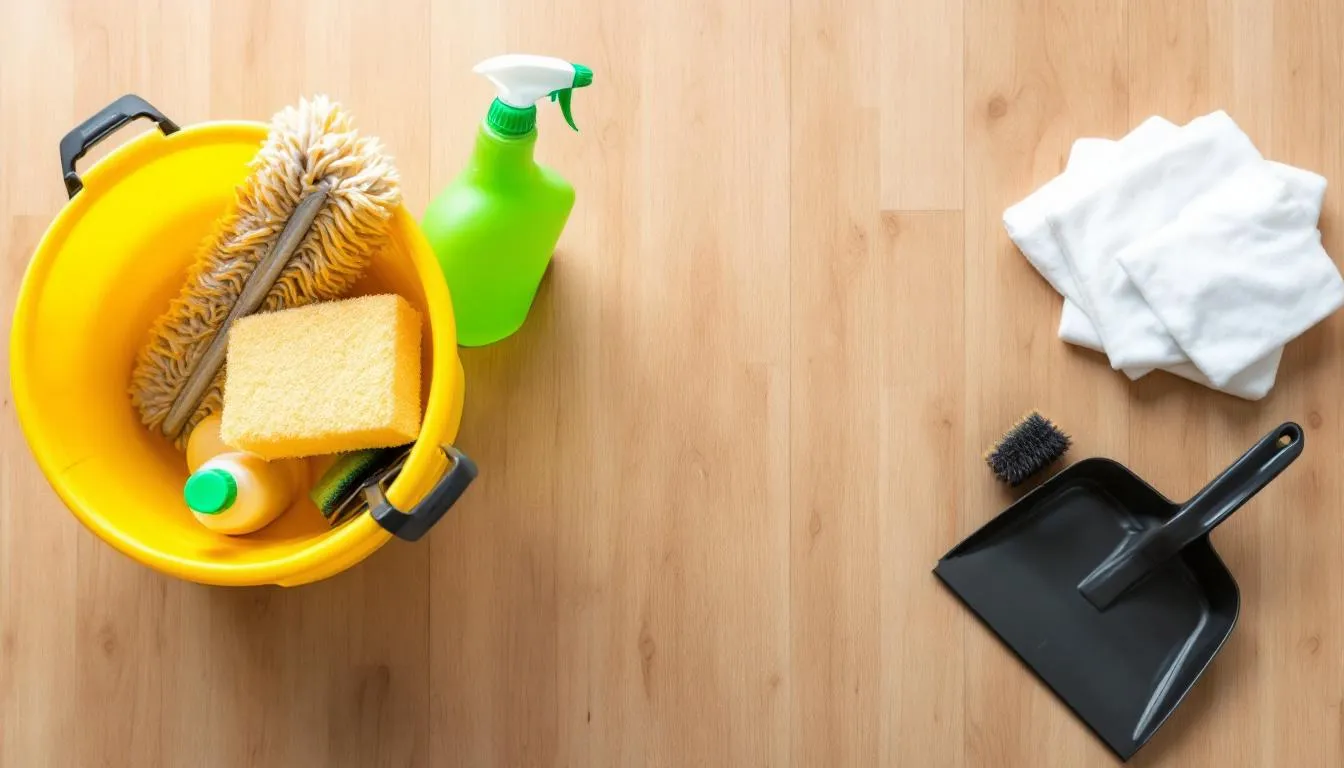Understanding fair compensation for domestic workers has become increasingly important as families across America seek professional cleaning services. Whether you’re a homeowner looking to hire a maid or someone considering a career in housekeeping, knowing current pay rates helps ensure fair treatment and proper budgeting.
The answer to how much does a maid get paid varies significantly based on location, experience, and employment type. Current data shows maid salaries ranging from $10.19 per hour for entry-level positions to over $49 per hour for experienced professionals in high-cost areas. Most maids earn between $14-$23 per hour, with annual salaries typically falling between $31,000-$47,000 for full-time positions.
This comprehensive guide breaks down maid compensation across different regions, employment types, and experience levels to help you navigate this important aspect of domestic work.

Average Maid Salaries Across the United States
The national landscape for maid compensation shows considerable variation depending on the data source and methodology used. According to recent salary surveys, the average hourly rate for maids ranges from $14.68 to $22.95 per hour.
PayScale reports an average hourly wage of $14.68 for housekeepers, with entry-level workers earning around $11.93 per hour. Meanwhile, ZipRecruiter found significantly higher numbers, with an average of $22.95 per hour and annual earnings averaging $47,727. The Bureau of Labor Statistics provides a middle ground with mean hourly wages of approximately $15.17 and annual salaries around $31,000 for full-time domestic workers.
Regional Pay Variations
Geographic location plays a crucial role in determining maid pay rates. High-cost states consistently offer higher compensation to attract and retain quality domestic workers:
Highest-Paying States:
- Hawaii: $23.78/hour ($49,460 annually)
- New York: $22.41/hour ($46,610 annually)
- District of Columbia: $21.93/hour ($45,610 annually)
- California: $20.95/hour ($43,570 annually)
- Massachusetts: $20.05/hour ($41,700 annually)
Lower-Wage Regions:
- Mississippi and other southeastern states: $11-$13/hour
- Rural areas in Wyoming and Montana: $16/hour ($32,000 annually)
- Small towns across the Midwest: $12-$15/hour
Urban vs. Rural Differences
Metropolitan areas typically offer higher wages but also come with increased living costs and competition. New York City maids can expect to earn between $35,860 and $47,040 annually, with hourly rates ranging from $17 to $23. San Francisco and other tech hubs often see rates of $20+ per hour for experienced cleaning professionals.
In contrast, rural areas may offer lower base pay but potentially more stable, long-term client relationships. Small-town maids often work for the same families for years, building trust and receiving regular raises based on performance and loyalty.

Key Factors That Determine Maid Pay Rates
Several critical factors influence how much a maid gets paid, creating the wide range of compensation seen across the industry. Understanding these variables helps both employers and workers set appropriate expectations and negotiate fair wages.
Experience Level and Skills
Experience significantly impacts earning potential in domestic work. Entry-level maids typically start near minimum wage, while seasoned professionals command premium rates:
- New workers: $11.93-$13/hour for basic cleaning tasks
- Experienced cleaners: $18-$25/hour with proven track records
- Specialized professionals: $25-$40/hour for luxury home care, antique handling, or eco-friendly cleaning
Workers who develop specialized skills can request higher compensation. These might include knowledge of proper care for expensive artwork, experience with high-end appliances, or certification in green cleaning methods.
Employment Type and Structure
The relationship between maid and employer greatly affects compensation structure:
Agency Employees typically earn $14-$20 per hour with benefits like health insurance, paid time off, and workers’ compensation. However, agencies take a percentage of client payments, reducing the worker’s direct earnings.
Independent Contractors can set their own rates, often earning $25-$40 per hour or more in affluent areas. They keep all client payments but lack benefits and must handle their own taxes and insurance.
Live-in Arrangements involve complex calculations including room, board, and cash wages. These positions often pay below standard hourly rates but provide housing and meals, which can be valuable in expensive areas.
Geographic and Market Factors
Local cost of living dramatically affects fair compensation. A maid earning $15/hour in rural Alabama has different purchasing power than someone earning the same rate in San Francisco. Smart employers and workers research local wage standards and adjust accordingly.
Market demand also influences rates. Areas with many affluent families but limited domestic workers can see premium wages, while oversaturated markets may depress pay rates.
Working Conditions and Schedule
Challenging working conditions often justify higher pay rates:
- Pet-friendly homes: Additional $2-$5/hour for homes with multiple pets
- Deep cleaning projects: $30-$50/hour for intensive one-time cleanings
- Holiday and weekend work: 1.5x regular rates for non-standard hours
- Emergency services: Premium rates for last-minute requests
Flexible scheduling can also impact compensation. Maids willing to work evenings, weekends, or irregular hours often command higher rates than those requiring standard business hours.
Employment Types and Their Impact on Earnings
The structure of employment significantly affects both immediate earnings and long-term financial security for domestic workers. Each arrangement offers distinct advantages and challenges that workers should consider carefully.
Agency-Employed Maids
Working through established cleaning agencies provides stability and professional support. Agency maids typically earn $14-$20 per hour, with the agency handling client acquisition, scheduling, and administrative tasks.
Advantages:
- Steady work schedule and guaranteed hours
- Workers’ compensation and liability insurance
- Background checks and professional training
- Benefits packages including health insurance and paid time off
Disadvantages:
- Lower hourly rates due to agency fees (typically 30-50% of client payments)
- Less direct client relationships
- Limited control over work assignments and methods
Independent Contractors and Freelancers
Self-employed maids enjoy greater autonomy and earning potential, often charging $25-$40 per hour or setting flat rates per home. In luxury markets, independent cleaners can earn $50+ per hour for specialized services.
Advantages:
- Higher direct earnings potential
- Flexible scheduling and client selection
- Opportunity to build long-term client relationships
- Control over cleaning methods and products used
Disadvantages:
- Irregular income and work availability
- Responsibility for own taxes, insurance, and equipment
- Need to handle marketing and client acquisition
- No workers’ compensation or benefits
Live-In Domestic Workers
Live-in arrangements remain common in affluent households requiring full-time domestic support. These positions involve complex compensation calculations that go beyond simple hourly wages.
Typical Compensation Structure:
- Base salary: $400-$800 per week cash wages
- Room and board valued at $200-$400 per week
- Total compensation equivalent to $15-$25 per hour
Considerations:
- Room and board quality varies significantly between employers
- Limited personal time and privacy
- Potential for scope creep beyond original job description
- Legal protections may be less clear than other employment types

Why Understanding Maid Pay Matters
Proper knowledge of domestic worker compensation serves multiple important purposes for both employers and employees. Fair pay practices benefit everyone involved in the domestic work relationship.
Ensuring Fair Compensation
Understanding market rates helps families budget appropriately for domestic services while ensuring workers receive fair compensation for their valuable work. When employers pay competitive wages, they attract more qualified and reliable workers, leading to better service quality and longer working relationships.
Fair compensation also recognizes the skilled nature of professional cleaning work. Experienced maids possess knowledge of proper cleaning techniques, fabric care, surface materials, and time management that deserves appropriate recognition through competitive pay.
Legal Compliance and Protection
Both employers and workers must understand legal requirements surrounding domestic work compensation. Failure to comply with minimum wage laws, overtime requirements, or worker protection standards can result in legal consequences and damaged relationships.
Proper wage knowledge helps employers avoid unintentional violations while protecting workers from exploitation. This is particularly important given that many domestic workers are immigrants or members of vulnerable populations who may not be fully aware of their rights.
Professional Industry Development
As the domestic service industry continues to grow and professionalize, fair compensation standards help elevate the entire field. When domestic work is properly valued and compensated, it attracts more professional workers and reduces turnover rates.
Recognition of domestic work’s economic value promotes dignity and respect in the industry. Families who understand the true worth of quality domestic services are more likely to treat workers as valued professionals rather than expendable help.
Career Planning and Business Development
For individuals considering careers in domestic work, understanding compensation ranges enables informed decision-making about employment options, skill development, and career advancement. Workers can plan their professional development to maximize earning potential.
Entrepreneurs looking to start cleaning businesses need accurate wage data to develop competitive pricing models while ensuring sustainable profit margins. This knowledge helps new businesses position themselves appropriately in local markets.
Legal Standards and Worker Protections
The legal landscape surrounding domestic worker compensation has evolved significantly, with stronger protections and clearer standards emerging at both federal and state levels. Understanding these requirements is essential for both employers and workers.
Federal Minimum Wage Requirements
The federal minimum wage of $7.25 per hour applies to most domestic workers, though many states have established higher minimum wages that supersede federal requirements. Over 30 states currently maintain minimum wages above the federal level, creating a complex patchwork of wage standards across the country.
Key State Examples:
- California: $16.00/hour minimum wage
- New York City: $16.50/hour
- Washington: $15.74/hour
- Massachusetts: $15.00/hour
Overtime and Hours Regulations
The Fair Labor Standards Act requires overtime pay at 1.5 times the regular rate for hours worked beyond 40 in a week. This applies to most domestic workers, including maids, regardless of their employment status as agency employees or independent contractors working regular schedules.
Important Considerations:
- Live-in workers may have different overtime calculations
- Some states have daily overtime requirements (8+ hours per day)
- Accurate time tracking is essential for legal compliance
State-Specific Protections
Many states have enacted additional protections for domestic workers beyond federal requirements:
Enhanced Labor Standards:
- Mandatory rest breaks and meal periods
- Paid sick leave requirements
- Protection against wage theft
- Right to organize and bargain collectively
Enforcement Mechanisms:
- State labor department complaint processes
- Legal aid resources for domestic workers
- Penalties for employers who violate wage and hour laws
Best Practices for Employers
Responsible employers should implement practices that exceed minimum legal requirements:
Documentation and Transparency:
- Written employment agreements outlining pay rates and job duties
- Detailed time tracking and regular pay statements
- Clear policies on overtime, holidays, and time off
Living Wage Considerations:
- Research local cost of living when setting wages
- Regular pay reviews and raises based on performance
- Consideration of benefits like transportation assistance or health insurance contributions
Worker Rights and Resources
Domestic workers should understand their rights and available resources:
Know Your Rights:
- Right to minimum wage and overtime pay
- Protection against discrimination and harassment
- Right to safe working conditions and appropriate equipment
Available Resources:
- National Domestic Workers Alliance advocacy and support
- State labor department complaint processes
- Legal aid organizations specializing in worker rights
- Community organizations providing worker education

The domestic work industry continues evolving toward greater professionalization and worker protection. As more families recognize the value of quality domestic services and workers organize for better conditions, compensation standards will likely continue improving across the sector.
Key Trends to Watch:
- Increased minimum wage rates in major metropolitan areas
- Growing demand for specialized cleaning services
- Technology platforms changing how domestic workers find clients
- Enhanced legal protections for domestic workers
Understanding current pay standards and legal requirements helps create positive working relationships that benefit both employers and workers. Fair compensation practices contribute to a more professional, stable domestic service industry that serves families while providing dignified work for domestic professionals.
Whether you’re a family seeking to hire a maid or someone considering domestic work as a career, staying informed about compensation standards ensures fair treatment and legal compliance. The domestic service industry’s continued growth depends on maintaining these fair wage practices and professional standards.